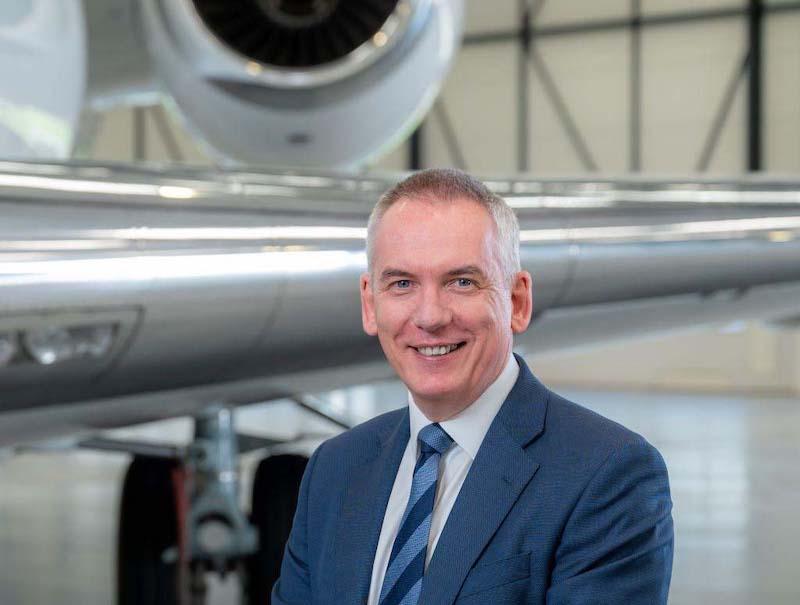Viewpoint: Thriving Airport, Thriving Community

London Biggin Hill Airport CEO David Winstanley.
Regional business aviation airports are far more than just enablers of flight arrivals and departures. They are economic hubs for local communities, directly responsible for hundreds of high-value jobs. They are the supporters and testing ground of innovation. They are home to growing, thriving businesses. Building and maintaining a community, both within the grounds of an airport – its own staff and those of resident companies – and externally with their local residents, is critical to ensure an airport ecosystem can evolve and develop.
At London Biggin Hill Airport, we are proud to be a regional business aviation airport that works with its community to develop operations and strategies for mutual benefit. Over the past 30 years, our transformation from an important World War II airfield to a globally recognized hub of business aviation and aircraft technology has been led by a strategic focus on considered development that benefits our surrounding community.
Economic Impact
It is clear that regional airports are important drivers of economic success. They contribute not only within their operational grounds but also to the broader regional economy. Findings from Lichfields’ report on London Biggin Hill Airport’s economic footprint reveal that, currently, our contribution to the UK economy is approximately £200 million ($260 million) GVA annually. Importantly, 72% of this is captured within our local area, benefitting local stakeholders, businesses and residents. It is a source of great pride that in 2022-23, businesses at the airport spent £28.5 million within Bromley, directly supporting other local companies. With planned investments, we hope to make more impact, with potential for GVA to rise to £636 million.
Education & Employment Opportunities
Regional business aviation plays a significant role in generating employment opportunities, particularly in specialised fields. At London Biggin Hill, we have around 1,800 on-site jobs and support nearly 2,700 when the supply chain is considered. More than a third of our staff are drawn from the London Borough of Bromley, with nearly half residing within Greater London. To put it into perspective, we support 88 jobs for every 1,000 movements.
To continue to thrive and provide skilled employees for the businesses that call us home, regional airports need to support the future workforce, investing in education and training initiatives. Our bi-annual Futures Week introduces young people to the wide range of careers available within the aviation sector, offering hands-on experiences that inspire the next generation of aviation professionals.
In addition to Futures Week, we have established partnerships with local schools and educational institutions, engaging in career days, assemblies and STEM (science, technology, engineering and math) events to promote early profession exploration. Brilliantly, we can already see this working; we have apprentices and colleagues who have come through this pipeline.
Strengthening Community Ties
Engaging with local communities is integral to ensure their understanding of regional airports. At London Biggin Hill, we have worked hard to integrate our airport into Bromley’s social fabric through a variety of partnerships and initiatives.
We support Bromley Football Club and Bromley Rugby Club, providing financial backing to their women and girls schemes. These sports struggle with the same lack of representation for women as aviation, and we are working together to tackle this. We are actively involved in local business awards and networking events, bringing local businesses and individuals together to celebrate those who are making a difference within the borough and provide a platform for collaboration.
Through partnerships like these, we can break down barriers, demonstrating how airports are more than logistical hubs, but an integral part of the community.
Honoring History, Looking Forward
One challenge regional airports can face is balancing their historical significance with future developments. At London Biggin Hill, we have a rich legacy as a strategically important air base during the Battle of Britain and a key site in the innovation of aviation communication.
While our focus remains on the future, we are committed to preserving the historical value of our airport and ensuring that our community feels connected to its past. By honouring our heritage, we not only nurture community pride but also strengthen our ties with residents who value the airport’s contribution to British history.
The Future Of Regional Airports
As business aviation continues to thrive, we remain steadfast in our belief that the success of regional airports is intrinsically linked to the communities they serve. By strengthening this connection, we can continue to generate value—both economically and socially—so that as our airports develop, everyone feels the benefit.
David Winstanley is CEO of London Biggin Hill Airport.




